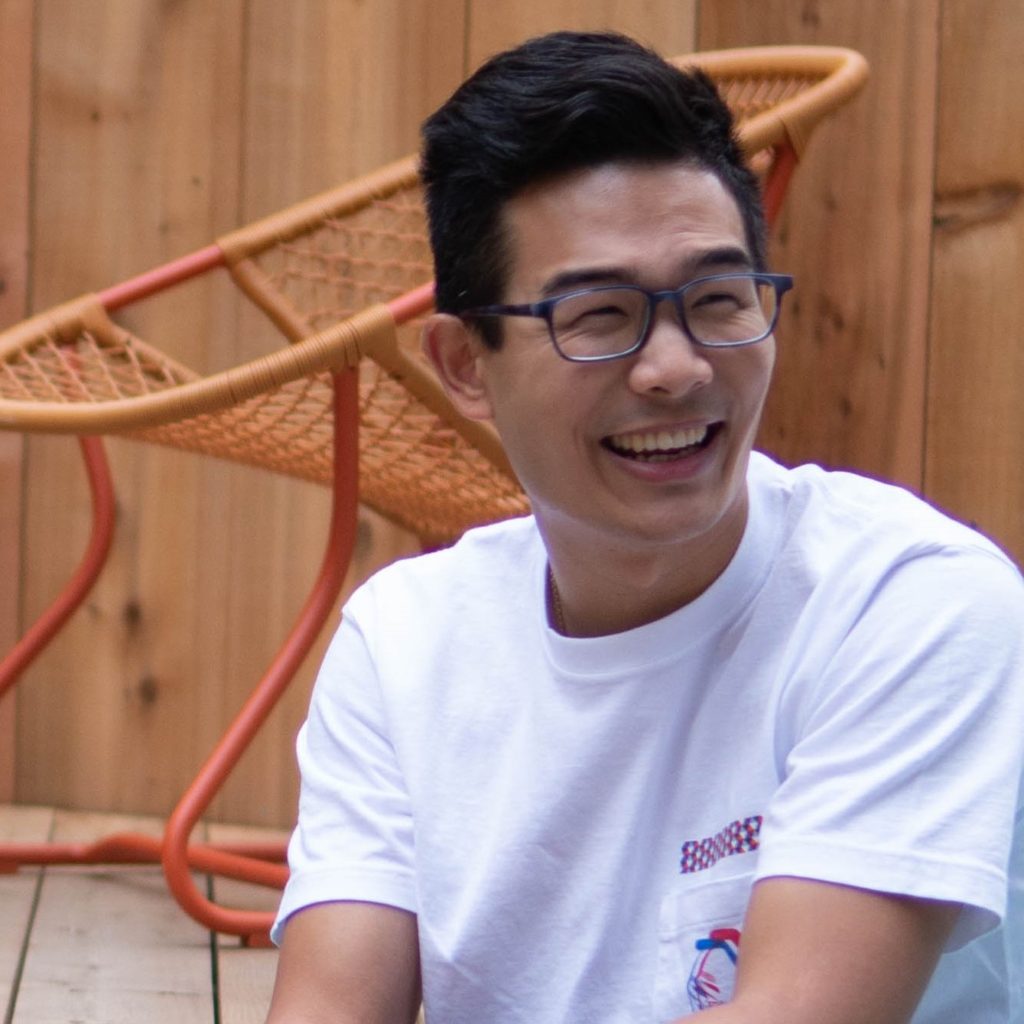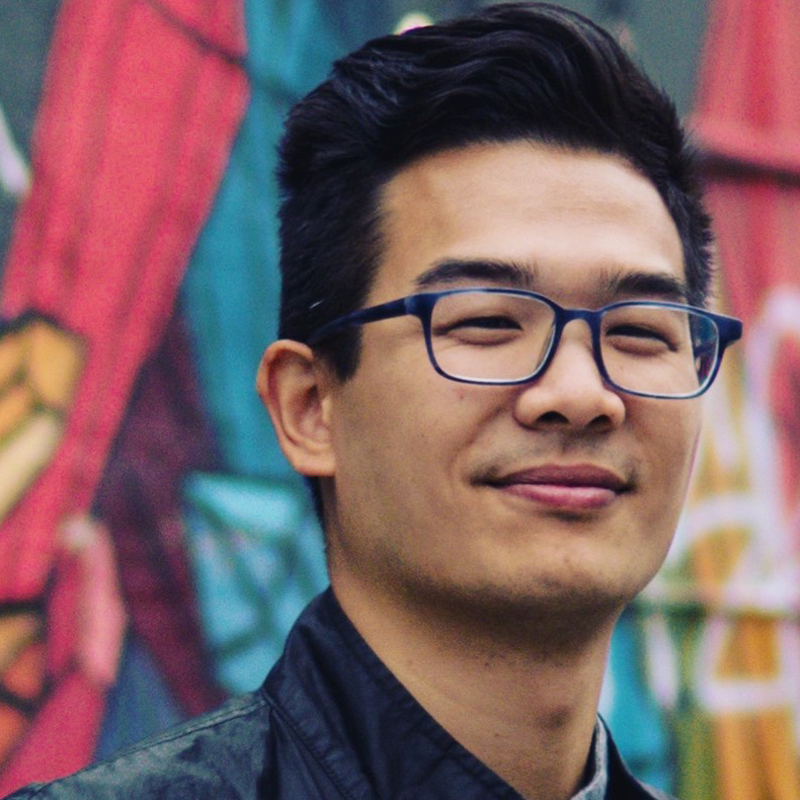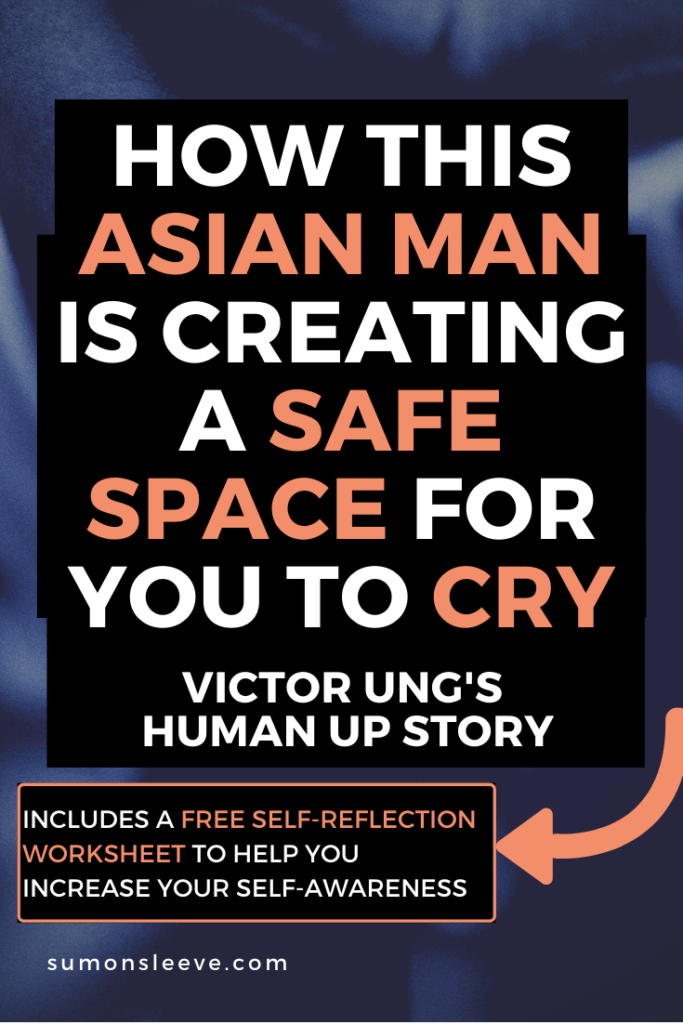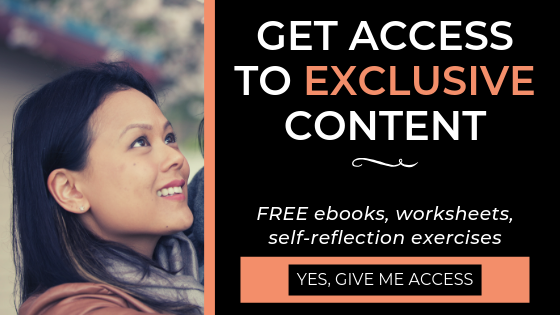For years, Victor Ung was told to "man up" whenever he showed difficult emotions. Now, he's teaching other Asian men to "Human Up" instead.
Have you ever felt the urge to cry but stopped yourself?
I have. Growing up as an Asian Canadian, my parents* would often discourage me from crying, telling me that I needed to do it in private, to express my emotions less explicitly as it made others feel uncomfortable and that it was weak to do so.
*Side note: over the years, my parents have changed for the better and I see this when my kids to cry, showing support and compassion instead of judgment and discomfort.
As an adult, I know it’s a healthy and cathartic human response but I’ve always struggled to cry. This isn’t because I still fear what others think but because I still have this weird sense that it’s embarrassing to do so and the shame I felt in my childhood is embedded in my tears. So when I feel that lump in my throat, I can’t let it go naturally.
As a female, it is more acceptable for us to cry and there is less pressure for us to hold it in compared to males. Therefore, I can’t imagine what males go through given the expectations that society has put on them.
Victor Ung (Writer, Podcaster, Speaker, Human Up) is on a mission to help others share their emotions, without judgment, shame or bias from others (or themselves).
We connected over 2 years ago when I saw an article he wrote about his struggles with emotional intelligence as an Asian American man. Recently, I had the pleasure of being a guest on his Human Up podcast where we delved into the topic of Asian parents, blending Eastern and Western values, and the costs and benefits of being humble.
The hour podcast only scratched the surface of his story. From how his mom projected her fears of failure when he told her about leaving his corporate job to advice on how to increase emotional intelligence, Victor dives deep into his journey of embracing his identity as an emotional Asian American man.

“I know I’ve only seen my dad cry once and being so conditioned, I even judged him for it.”
1. What inspired you to create Human Up?
“I remember one day as I was leaving my workplace to catch the bus, I had a certain awareness wash over me. Suddenly, I felt how bored and uninterested everyone was in such a busy intersection. It felt like one of those futuristic dystopian movies where the coloring was cold and dark and I was starting to realize that we were all robots. I started questioning, are we human?
This was also a few months after I had already been fired off a client project in a heat storm. I was blindsided. I didn’t think I did anything wrong, but only after did I realize that I had terrible communication and emotional management skills. Again with the questioning, do I know how to be a human?
And for years before that, I’ve been told to “man up” whenever I showed any difficult emotions. And yet, trying to be “cool” with my emotions still left me feeling alone, romantically, socially, professionally. So I started wondering, what does it really mean to “man up”? And why don’t we all human up instead?
When I watched The School of Life’s video, “What is Emotional Intelligence?”, aka EQ, that’s when I realized that was what I’ve been missing in my life, the skill to productively respond to our emotions, rather than blindly reacting to them.
I dove headfirst into learning how important EQ was in creating fulfillment, depth, and success in our lives. I went into therapy, worked with life coaches, and joined men’s groups in order to learn more about myself and how to manage and communicate my true emotions. In doing so, my friends and family praised me for the growth they were seeing in me, and I knew I was onto something.
Now it’s my mission to share what I’ve learned so far and to provide a safe space for other Asian men to share their emotions, without judgment, shame, or bias from others, something very many of us, like me, never had growing up.”
2. As an Asian man who talks about emotions, you must get quite a bit of feedback. Have they been generally positive? What’s are the most common issues Asian men have about opening up? Why do you think that is? For Asian men who grew up with a mindset to “Man Up” and are struggling to manage their emotions, what’s one piece of advice you would give them?
“To my surprise, the feedback from talking about emotions has been generally positive. After posting a Youtube video owning up to my quarter-life crisis, and writing a blog post about my struggles as an emotional Asian American man, I’ve had so many comments and reach out to thank me for being so honest and vulnerable.
Most everyone agrees that it’s rare to see Asian men be emotional. I know I’ve only seen my dad cry once and being so conditioned, I even judged him for it. It’s difficult, especially for those who immigrated to a new country to start a whole new life because that journey requires a lot of resilience and the ability to let go. And for many, that means not letting the emotions get in the way. Combine that with the fact that many Asian men typically want the feeling of independence, autonomy, and protection, which doesn’t allow any space for other people to come in and help.
My piece of advice for those struggling to not let their emotions run them, their lives, and their relationships would be to join a men’s group. There are many free ones around the country and it will definitely be nerve-wracking and uncomfortable, but it will change your life and people around you will notice.“

3. Let’s talk about Asian family dynamics. Stereotypically, Asian Americans/Canadians tend to follow a straight and narrow path, get into University/College, get a well-paying and secure job, climb the corporate ladder, retire at 65. How did they react when you decided to pursue this endeavour? How did that conversation go and was there something that worked for you??
“I kept it somewhat a secret from my parents for a while because of this. I knew they would overreact and I would either have to sit and listen to a long lecture or get into a shouting match and I didn’t need that.
When I finally did tell them, I did so very subtly. Luckily, my corporate job allows us a Leave of Absence, so I told them I was still technically employed but taking a long-term unpaid vacation. They still questioned the unpaid part, but I reassured them by praising them for teaching me how to save money.
But they definitely still worry. Just the other day, my mom started talking about different technology companies that were hiring. Instead of fighting back though, I just became curious and asked her why she was doing this. And it boiled down to a lack of trust that it will work out. Her fears of failure were being projected onto me. And that’s what really affirmed that I need to continue pursuing entrepreneurship as a way to also “human up” and break past the emotions that do so well in keeping us in place.“
4. For someone looking to Human Up and increase their emotional intelligence, what’s the first thing they should do?
“Increase your emotional vocabulary. A good tool is the Wheel of Emotions. There’s still an ongoing debate on what the core emotions are and how they’re connected to the deeper emotions, but just pick one that makes sense to you. And whenever you feel something, first identify the core emotion and then drill down to find a more specific that truly describes how you’re feeling.
If you can practice naming a more specific emotion during your experience, you’ll find that it will actually help you find clarity and relief rather than being consumed by a vague cloud of emotion.”
5. What’s next for Victor Ung and for Human Up?
“So much! As a certified life coach, I’m so excited to offer my partnership for humans to better understand themselves and create the life they truly deserve. And that will look like a lot of different ways: 1-on-1 coaching sessions, cannabis meditation sessions, private men’s groups, video courses, speaking engagements, podcasts, blogs, books, and even guided plant medicine retreats.
What I’m working on now is the men’s group, called Emotion Dojo. It’s a private membership for Asian men who want a dedicated space with dudes who look like them to get emotional, without feeling less of a man.
You can join the free waitlist for it at http://bit.ly/emotiondojo
I’d be honored to serve as a trusted resource for those to come back to and find their own sense of calmness and clarity.“





